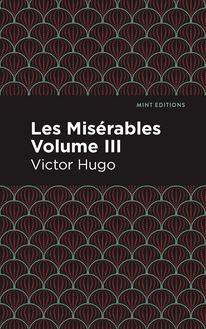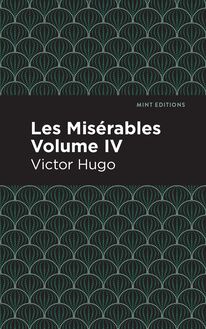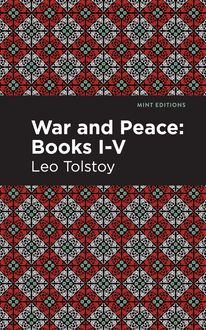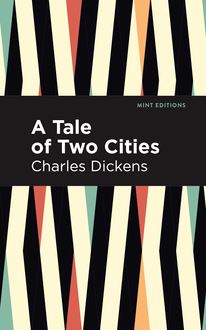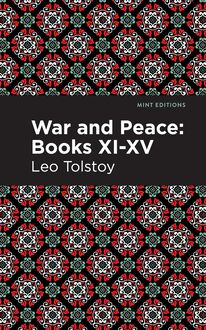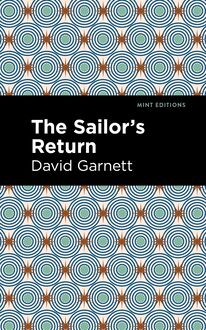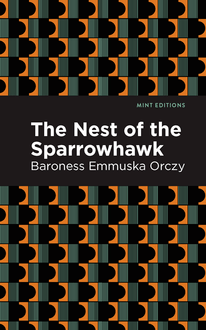-
 Univers
Univers
-
 Ebooks
Ebooks
-
 Livres audio
Livres audio
-
 Presse
Presse
-
 Podcasts
Podcasts
-
 BD
BD
-
 Documents
Documents
-
- Cours
- Révisions
- Ressources pédagogiques
- Sciences de l’éducation
- Manuels scolaires
- Langues
- Travaux de classe
- Annales de BEP
- Etudes supérieures
- Maternelle et primaire
- Fiches de lecture
- Orientation scolaire
- Méthodologie
- Corrigés de devoir
- Annales d’examens et concours
- Annales du bac
- Annales du brevet
- Rapports de stage
La lecture à portée de main
Vous pourrez modifier la taille du texte de cet ouvrage
Découvre YouScribe en t'inscrivant gratuitement
Je m'inscrisDécouvre YouScribe en t'inscrivant gratuitement
Je m'inscrisEn savoir plus
Vous pourrez modifier la taille du texte de cet ouvrage
En savoir plus

Description
War and Peace (1869) is a novel by Russian writer Leo Tolstoy. Serialized between 1865 and 1867, it was published in book form in 1869 and has since been recognized as a masterpiece of world literature. Notable for its epic scale, War and Peace encompasses hundreds of characters, diligently following its five central families across fifteen years while featuring detailed imaginings of such historical figures as Napoleon Bonaparte. In The Epilogues, Tolstoy draws his epic story to a heartwarming close while offering his theory on the philosophy of history. After so much death and destruction, Tolstoy finds solace in the sanctity of marriage and the effort of traumatized people to rebuild and reclaim their lives. As a new generation is born, hope is rekindled, but faint rumblings of unrest and conspiracy suggest that peace, once more, will be difficult to maintain. In the epilogue’s second part, Tolstoy breaks from his narrative to offer his theory on the philosophy of history, condemning the popular Great Man Theory’s elevation of the individual and proposing that small, singular events form the basis of historical change. With its depiction of the brutalities of war on individuals and society alike, Tolstoy’s story brings history to life while reminding us that the past is always closer than we care to think. As ambitious as it is triumphant, Leo Tolstoy’s masterpiece is an epic novel of history and family, a story of faith and the will to persevere in the face of unspeakable catastrophe. War and Peace is a work that transcends both history and description, not just for the scale of its narrative and setting, but for the scope of its philosophical interests. Since its publication, it has been praised as an essential work of literature by Ivan Turgenev, Gustave Flaubert, Thomas Mann, and Ernest Hemingway, and has been adapted for film, theater, and television countless times. With a beautifully designed cover and professionally typeset manuscript, this edition of Leo Tolstoy’s War and Peace is a classic of Russian literature reimagined for modern readers.
Sujets
Informations
| Publié par | Mint Editions |
| Date de parution | 22 juin 2021 |
| Nombre de lectures | 1 |
| EAN13 | 9781513286853 |
| Langue | English |
| Poids de l'ouvrage | 2 Mo |
Informations légales : prix de location à la page 0,0400€. Cette information est donnée uniquement à titre indicatif conformément à la législation en vigueur.
Extrait
War and Peace
The Epilogues
Leo Tolstoy
War and Peace: The Epilogues was first published in 1867.
This edition published by Mint Editions 2021.
ISBN 9781513281834 | E-ISBN 9781513286853
Published by Mint Editions®
minteditionbooks.com
Publishing Director: Jennifer Newens
Design & Production: Rachel Lopez Metzger
Project Manager: Micaela Clark
Translated by: Louise and Aylmer Maude
Typesetting: Westchester Publishing Services
C ONTENTS F IRST E PILOGUE . 1813–20 I II III IV V VI VII VIII IX X XI XII XIII XIV XV XVI S ECOND E PILOGUE I II III IV V VI VII VIII IX X XI XII
FIRST EPILOGUE
1813–20
I
S even years had passed. The storm-tossed sea of European history had subsided within its shores and seemed to have become calm. But the mysterious forces that move humanity (mysterious because the laws of their motion are unknown to us) continued to operate.
Though the surface of the sea of history seemed motionless, the movement of humanity went on as unceasingly as the flow of time. Various groups of people formed and dissolved, the coming formation and dissolution of kingdoms and displacement of peoples was in course of preparation.
The sea of history was not driven spasmodically from shore to shore as previously. It was seething in its depths. Historic figures were not borne by the waves from one shore to another as before. They now seemed to rotate on one spot. The historical figures at the head of armies, who formerly reflected the movement of the masses by ordering wars, campaigns, and battles, now reflected the restless movement by political and diplomatic combinations, laws, and treaties.
The historians call this activity of the historical figures “the reaction.”
In dealing with this period they sternly condemn the historical personages who, in their opinion, caused what they describe as the reaction. All the well-known people of that period, from Alexander and Napoleon to Madame de Sta ë l, Photius, Schelling, Fichte, Chateaubriand, and the rest, pass before their stern judgment seat and are acquitted or condemned according to whether they conduced to progress or to reaction.
According to their accounts a reaction took place at that time in Russia also, and the chief culprit was Alexander I, the same man who according to them was the chief cause of the liberal movement at the commencement of his reign, being the savior of Russia.
There is no one in Russian literature now, from schoolboy essayist to learned historian, who does not throw his little stone at Alexander for things he did wrong at this period of his reign.
“He ought to have acted in this way and in that way. In this case he did well and in that case badly. He behaved admirably at the beginning of his reign and during 1812, but acted badly by giving a constitution to Poland, forming the Holy Alliance, entrusting power to Arakch é ev, favoring Gol í tsyn and mysticism, and afterwards Shishk ó v and Photius. He also acted badly by concerning himself with the active army and disbanding the Sem ë nov regiment.”
It would take a dozen pages to enumerate all the reproaches the historians address to him, based on their knowledge of what is good for humanity.
What do these reproaches mean?
Do not the very actions for which the historians praise Alexander I (the liberal attempts at the beginning of his reign, his struggle with Napoleon, the firmness he displayed in 1812 and the campaign of 1813) flow from the same sources—the circumstances of his birth, education, and life—that made his personality what it was and from which the actions for which they blame him (the Holy Alliance, the restoration of Poland, and the reaction of 1820 and later) also flowed?
In what does the substance of those reproaches lie?
It lies in the fact that an historic character like Alexander I, standing on the highest possible pinnacle of human power with the blinding light of history focused upon him; a character exposed to those strongest of all influences: the intrigues, flattery, and self-deception inseparable from power; a character who at every moment of his life felt a responsibility for all that was happening in Europe; and not a fictitious but a live character who like every man had his personal habits, passions, and impulses toward goodness, beauty, and truth—that this character—though not lacking in virtue (the historians do not accuse him of that)—had not the same conception of the welfare of humanity fifty years ago as a present-day professor who from his youth upwards has been occupied with learning: that is, with books and lectures and with taking notes from them.
But even if we assume that fifty years ago Alexander I was mistaken in his view of what was good for the people, we must inevitably assume that the historian who judges Alexander will also after the lapse of some time turn out to be mistaken in his view of what is good for humanity. This assumption is all the more natural and inevitable because, watching the movement of history, we see that every year and with each new writer, opinion as to what is good for mankind changes; so that what once seemed good, ten years later seems bad, and vice versa. And what is more, we find at one and the same time quite contradictory views as to what is bad and what is good in history: some people regard giving a constitution to Poland and forming the Holy Alliance as praiseworthy in Alexander, while others regard it as blameworthy.
The activity of Alexander or of Napoleon cannot be called useful or harmful, for it is impossible to say for what it was useful or harmful. If that activity displeases somebody, this is only because it does not agree with his limited understanding of what is good. Whether the preservation of my father’s house in Moscow, or the glory of the Russian arms, or the prosperity of the Petersburg and other universities, or the freedom of Poland or the greatness of Russia, or the balance of power in Europe, or a certain kind of European culture called “progress” appear to me to be good or bad, I must admit that besides these things the action of every historic character has other more general purposes inaccessible to me.
But let us assume that what is called science can harmonize all contradictions and possesses an unchanging standard of good and bad by which to try historic characters and events; let us say that Alexander could have done everything differently; let us say that with guidance from those who blame him and who profess to know the ultimate aim of the movement of humanity, he might have arranged matters according to the program his present accusers would have given him—of nationality, freedom, equality, and progress (these, I think, cover the ground). Let us assume that this program was possible and had then been formulated, and that Alexander had acted on it. What would then have become of the activity of all those who opposed the tendency that then prevailed in the government—an activity that in the opinion of the historians was good and beneficent? Their activity would not have existed: there would have been no life, there would have been nothing.
If we admit that human life can be ruled by reason, the possibility of life is destroyed.
II
I f we assume as the historians do that great men lead humanity to the attainment of certain ends—the greatness of Russia or of France, the balance of power in Europe, the diffusion of the ideas of the Revolution, general progress, or anything else—then it is impossible to explain the facts of history without introducing the conceptions of chance and genius.
If the aim of the European wars at the beginning of the nineteenth century had been the aggrandizement of Russia, that aim might have been accomplished without all the preceding wars and without the invasion. If the aim was the aggrandizement of France, that might have been attained without the Revolution and without the Empire. If the aim was the dissemination of ideas, the printing press could have accomplished that much better than warfare. If the aim was the progress of civilization, it is easy to see that there are other ways of diffusing civilization more expedient than by the destruction of wealth and of human lives.
Why did it happen in this and not in some other way?
Because it happened so! “Chance created the situation; genius utilized it,” says history.
But what is chance? What is genius?
The words chance and genius do not denote any really existing thing and therefore cannot be defined. Those words only denote a certain stage of understanding of phenomena. I do not know why a certain event occurs; I think that I cannot know it; so I do not try to know it and I talk about chance. I see a force producing effects beyond the scope of ordinary human agencies; I do not understand why this occurs and I talk of genius.
To a herd of rams, the ram the herdsman drives each evening into a special enclosure to feed and that becomes twice as fat as the others must seem to be a genius. And it must appear an astonishing conjunction of genius with a whole series of extraordinary chances that this ram, who instead of getting into the general fold every evening goes into a special enclosure where there are oats—that this very ram, swelling with fat, is killed for meat.
But the rams need only cease to suppose that all that happens to them happens solely for the attainment of their sheepish aims; they need only admit that what happens to them may also have purposes beyond their ken, and they will at once perceive a unity and coherence in what happened to the ram that was fattened. Even if they do not know for what purpose they are fattened, they will
-
 Univers
Univers
-
 Ebooks
Ebooks
-
 Livres audio
Livres audio
-
 Presse
Presse
-
 Podcasts
Podcasts
-
 BD
BD
-
 Documents
Documents
-
Jeunesse
-
Littérature
-
Ressources professionnelles
-
Santé et bien-être
-
Savoirs
-
Education
-
Loisirs et hobbies
-
Art, musique et cinéma
-
Actualité et débat de société
-
Jeunesse
-
Littérature
-
Ressources professionnelles
-
Santé et bien-être
-
Savoirs
-
Education
-
Loisirs et hobbies
-
Art, musique et cinéma
-
Actualité et débat de société
-
Actualités
-
Lifestyle
-
Presse jeunesse
-
Presse professionnelle
-
Pratique
-
Presse sportive
-
Presse internationale
-
Culture & Médias
-
Action et Aventures
-
Science-fiction et Fantasy
-
Société
-
Jeunesse
-
Littérature
-
Ressources professionnelles
-
Santé et bien-être
-
Savoirs
-
Education
-
Loisirs et hobbies
-
Art, musique et cinéma
-
Actualité et débat de société
- Cours
- Révisions
- Ressources pédagogiques
- Sciences de l’éducation
- Manuels scolaires
- Langues
- Travaux de classe
- Annales de BEP
- Etudes supérieures
- Maternelle et primaire
- Fiches de lecture
- Orientation scolaire
- Méthodologie
- Corrigés de devoir
- Annales d’examens et concours
- Annales du bac
- Annales du brevet
- Rapports de stage


